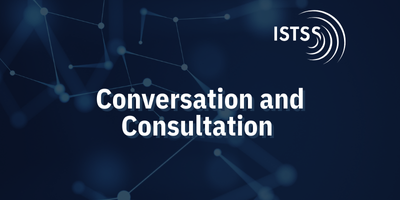Bringing Together Clinicians and Researchers From Around the World to Advocate for the Field of Traumatic Stress.
Healing Trauma Together
The International Society for Traumatic Stress Studies is dedicated to sharing information about the effects of trauma and the discovery and dissemination of knowledge about policy, program and service initiatives that seek to reduce traumatic stressors and their immediate and long-term consequences. ISTSS is an international interdisciplinary professional organization that promotes advancement and exchange of knowledge about traumatic stress.
Late-Breaking Poster Abstracts for the ISTSS 40th Annual Meeting
Deadline: Friday, July 26, 2024
All too often, research isn't completed when ISTSS abstract submissions close. ISTSS is excited to offer this opportunity to submit a late-breaking poster submission for the 40th Annual Meeting.
Only poster abstract submissions will be considered.
The ISTSS 40th Annual Meeting will focus on innovative strategies to apply basic science knowledge to the assessment and treatment of traumatic stress, as well as on the translation of scientific findings into actionable interventions for the global community. In pursuit of this goal, we seek submissions specific to the field of traumatic stress on topics related—but not limited—to:
- Application of biomedical science findings to inform assessments and interventions for traumatic stress symptoms/disorders.
- Research investigating the psychological, biological, social and behavioral mechanisms that underlie post-trauma mental health.
- Research taking a life course perspective to address to address the spectrum of translational science research.
- Evidence-based practices and innovative research in basic science, intervention development and implementation, and policy.
- Innovative transdiagnostic treatment approaches addressing the myriad consequences of trauma.
- Cutting-edge research methodologies and statistical frameworks for translational science research.
- Ethical implications and considerations associated with the application of translational science in traumatic stress studies.
- Ways to effectively communicate and disseminate research to different stakeholders.
- Ways to cultivate translational science and interdisciplinary exchange.
- Challenges and debates in the area of translational science.
- Translational science as applicable to the global community.
Registration is Now Open!
Join us in Boston on September 25-28, 2024 for the ISTSS 40th Annual Meeting. The ISTSS Annual Meeting provides a forum for the dissemination of theoretical work, scientific research, and evidence-based clinical approaches in traumatic stress studies.
Conversations and Consultations
Our Conversations and Consultation series is a members-only series that provides members with the opportunity to exchange valuable insight and advice with subject-matter experts, mentors, and/or colleagues in the trauma field. Each session is facilitated by one or more experts and presented to ISTSS members as a free membership benefit. Check out past sessions on industry careers, part-time private practice, and our most recent session on international collaboration.
Grow Your Professional Network by Volunteering with ISTSS
Volunteers play an integral role in ISTSS' day-to-day activities and form a broad professional network. Interested in adding an ISTSS volunteer position to your CV?
What are asylee’s impressions of leading psychotherapies for posttraumatic stress? – Cassidy, McQuaid, Heatherington, & Su
Psychotherapy with an exposure component (ex. CBT, NET, EMDR) has received the most research support for treating posttraumatic stress among individuals seeking asylum. However, there are concerns that the emotionally challenging nature of exposure work may decrease treatment engagement and increase attrition. Ours is the first study to gather perspectives from individuals seeking asylum on which empirically supported treatments they perceive as most credible and comfortable to engage in.
What is the psychological impact of suicide exposure among active duty service members? – Schmied, Walter, Glassman, Jun, & Pippard
Millions of people have lost someone in their lives to suicide. Research has shown the profound impact of being exposed to suicide among civilians and veterans, but less information is available about the psychological impact of exposure among active duty service members. This blog discusses the work done by a team from San Diego State University to investigate the psychological health correlates of suicide exposure among a large clinical sample of active duty service members.
Military Matters: Veteran Psychotherapy and the Use of Military Metaphor – Kenneth J. Thompson, PhD
The use of military metaphor in the health sciences has been a topic of recurrent interest and debate for several decades. In that time, writers have decried how “wars” against such scourges as cancer, drugs, and, more recently the COVID-19 pandemic, can shape conceptualizations of these maladies and their treatments in unproductive ways (see, for example, Hauser & Schwarz, 2020; Nie et al., 2016; for an earlier and seminal statement of this position, see Sontag, 1978). Fuks (2010) cautions against this militarized language, in which providers wage war against disease, concerned not only that the disease might supplant the patient as the focus of attention but also that providers themselves might be adversely affected: “it is not simply for patients that medicine must create new metaphors.



